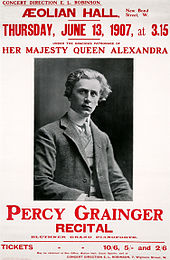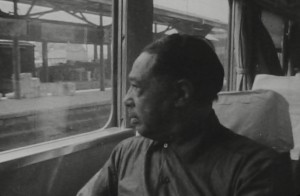 I started listening to and collecting golden-age classical recordings some forty-odd years ago, right around the time that they first started coming out on budget-priced long-playing albums. Today I own hundreds of compact discs containing digital transfers of records made prior to 1948, the year when the newly invented LP replaced the 78.
I started listening to and collecting golden-age classical recordings some forty-odd years ago, right around the time that they first started coming out on budget-priced long-playing albums. Today I own hundreds of compact discs containing digital transfers of records made prior to 1948, the year when the newly invented LP replaced the 78.
Here are five reasons why I love my old records—in the present case, classical piano 78s cut in the Thirties. All five of these pianists were famous in their day. Now their names are for the most part familiar only to connoisseurs of prewar piano playing. Because they made records, though, it’s possible for us to know why they were legends in their own time.
As you will hear, their styles were individual, even idiosyncratic, in a way that may startle listeners accustomed to contemporary piano playing. That’s why I love them so. For better and (sometimes) worse, you simply don’t hear playing like this in modern-day concert halls:
• From 1931, Percy Grainger plays his own arrangement of Bach’s Toccata and Fugue in D Minor:
• From 1933, Mischa Levitzki plays Liszt’s Twelfth Hungarian Rhapsody:
• From 1935, Alfred Cortot plays the first movement of Ravel’s Sonatine:
• From 1936, Ignaz Friedman plays Chopin’s E Flat Nocturne, Op. 55/2:
• From 1939, Benno Moiseiwitsch plays Sergei Rachmaninoff’s transcription of the scherzo from Mendelsson’s incidental music for A Midsummer Night’s Dream. This performance was made in a single take:






 Duke Ellington liked train whistles, too, as you can hear for yourself in
Duke Ellington liked train whistles, too, as you can hear for yourself in